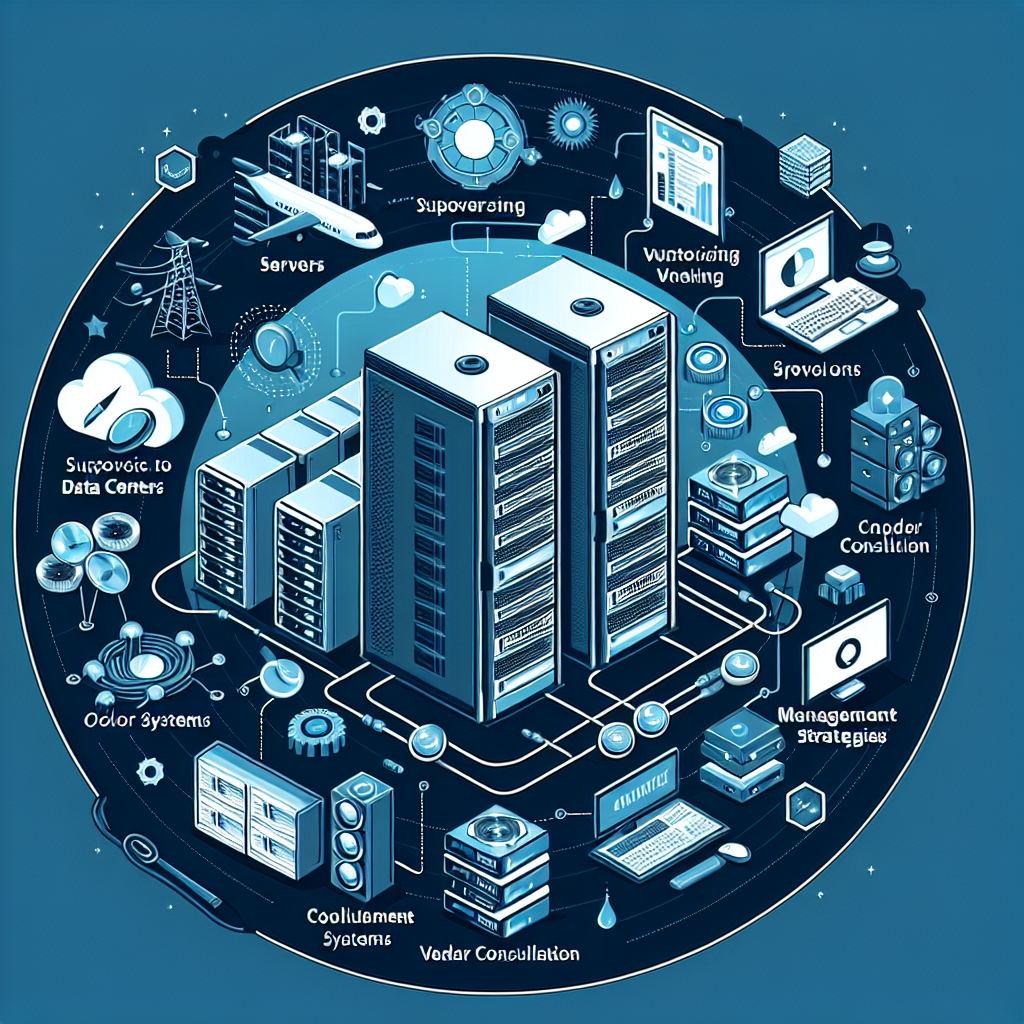In today’s digital age, data centers are an essential component of any organization’s IT infrastructure. They house the servers, storage, and networking equipment that support critical business operations and store sensitive data. As such, selecting and managing data center vendors is a crucial decision that can have a significant impact on the performance, security, and scalability of your infrastructure. Here are some key considerations to keep in mind when evaluating and working with data center vendors:
1. Reliability and uptime: The primary function of a data center is to ensure the availability of your IT systems and applications. When selecting a vendor, it is important to consider their track record of reliability and uptime. Look for vendors that have redundant power sources, cooling systems, and network connections to minimize the risk of downtime.
2. Security: Data centers house sensitive and confidential information, so security is a top priority. Make sure your vendor has robust physical security measures in place, such as access controls, surveillance cameras, and security guards. Additionally, inquire about their cybersecurity practices, including firewalls, intrusion detection systems, and encryption protocols.
3. Scalability: As your business grows, your data center needs are likely to evolve. Choose a vendor that can accommodate your future growth and scale your infrastructure as needed. This may involve flexible pricing models, additional rack space, or the ability to add new services and technologies.
4. Compliance and certifications: Depending on your industry, you may be subject to regulatory requirements and industry standards that govern the handling of data. Ensure that your data center vendor is compliant with relevant regulations, such as HIPAA for healthcare organizations or PCI DSS for payment card data. Look for vendors that have certifications like SSAE 16 or ISO 27001 to demonstrate their commitment to security and compliance.
5. Support and service level agreements (SLAs): In the event of an issue or outage, you need to be able to rely on your data center vendor for timely and effective support. Review the vendor’s SLAs for response times, resolution times, and uptime guarantees. Consider their support hours, escalation procedures, and communication channels to ensure they align with your business needs.
6. Location and proximity: The physical location of a data center can have implications for latency, disaster recovery, and compliance requirements. Consider the geographic location of the data center in relation to your offices, customers, and disaster recovery sites. Additionally, assess the proximity to major network hubs and consider the potential impact of natural disasters or geopolitical events.
7. Vendor reputation and references: Before committing to a data center vendor, do your due diligence and research their reputation in the industry. Look for customer reviews, case studies, and references from existing clients to gauge their reliability, performance, and customer service. Consider visiting the data center facilities in person to assess their infrastructure and operations firsthand.
In conclusion, selecting and managing data center vendors is a critical decision that requires careful consideration of factors such as reliability, security, scalability, compliance, support, location, and reputation. By evaluating these key considerations and conducting thorough due diligence, you can ensure that your data center vendor meets your organization’s needs and contributes to the success of your IT infrastructure.

Leave a Reply
You must be logged in to post a comment.